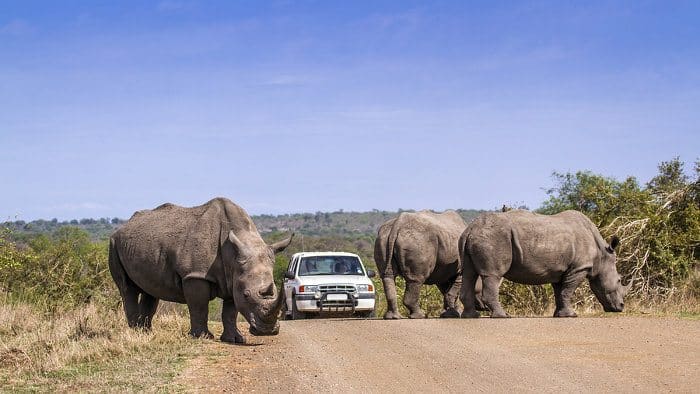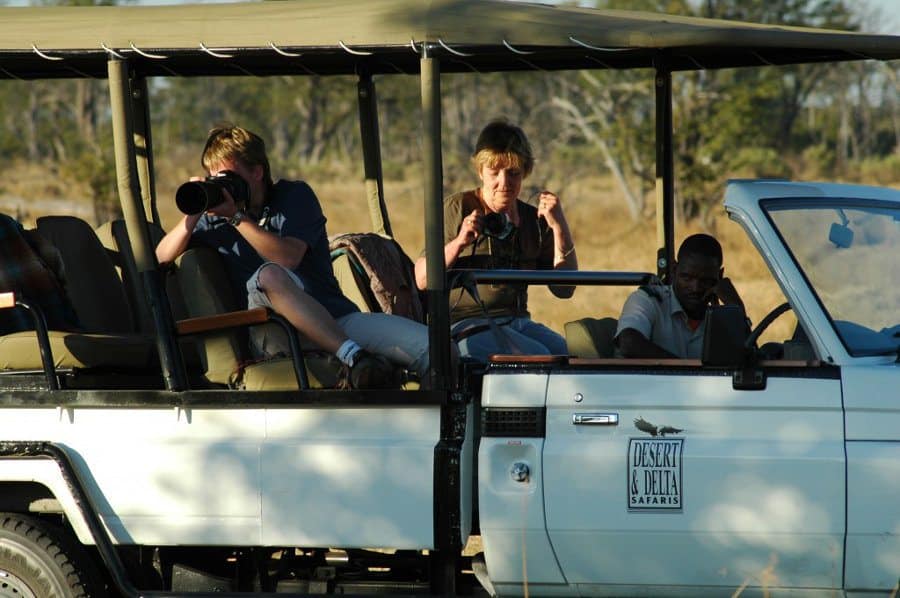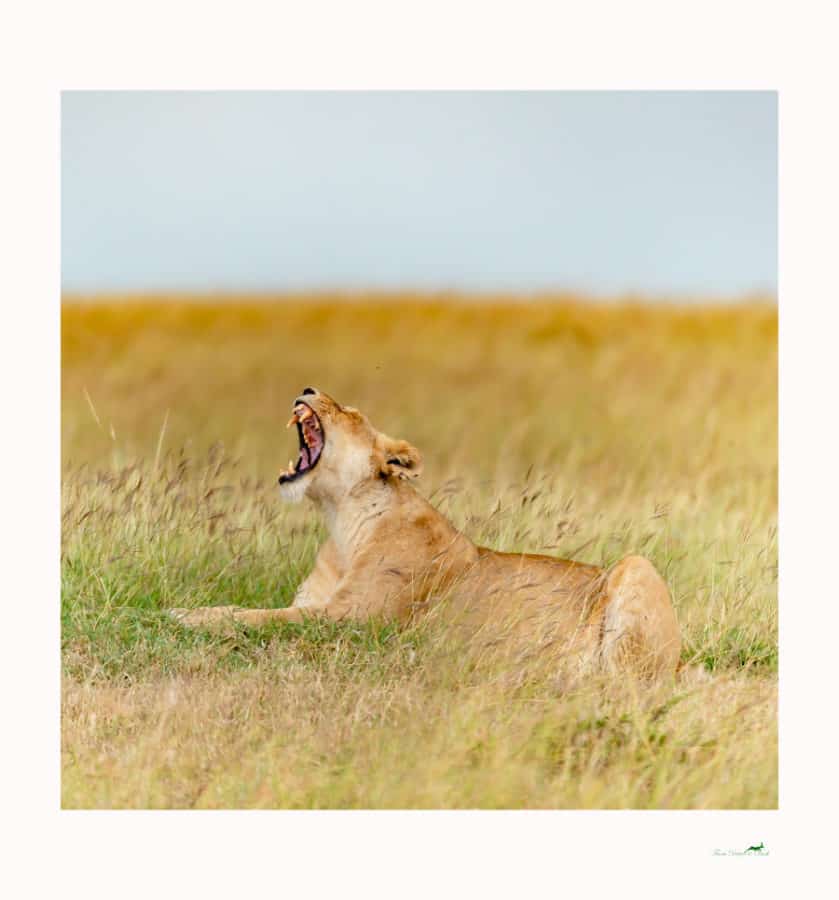Unfortunately, many people associate safaris with exorbitant prices and see it as a vacation that’s financially out of reach. You’ll be pleased to know this is not always the case. In the end, how much does an African safari cost comes down to what you’re looking for.
Yes, you can go on safari for USD 1000 per day. But you can also enjoy incredibly intimate safari experiences for much less than USD 100 per day.
How Much Does a Safari Cost?
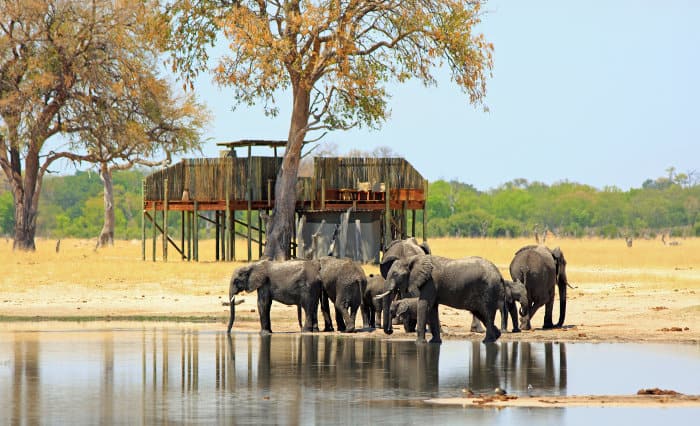
African safaris vary enormously in cost. There is the cheap and relatively cheerful, all the way up to some of the most expensive holidays on the planet.
You can enjoy good wildlife encounters for less than USD 100 per day. Expect to pay a minimum of USD 150 per day for the best destinations and a multi-day safari program. USD 250 per day and upwards is mid range.
How much does a safari cost in East Africa vs Southern Africa
In general, entry to mid-range East African safaris cost more than those in Southern Africa.
The park fees are higher and you cannot safari in your own vehicle. There are fewer public campsites so you are reliant on private camps.
For example, a safari on Tanzania’s Northern Circuit or anywhere multi-day trip in Kenya, is going to cost USD 200 per day and more.
Check out more detailed costs on the ultimate safari guides to Tanzania, Kenya, Zambia and gorilla trekking.
Cheaper park fees bring that cost down in Southern Africa. Many of the best safari destinations in Southern Africa are also very accessible, like Chobe National Park’s proximity to Livingstone and Victoria Falls. This limits private transport and further reduces costs.
Southern Africa has many smaller safari destinations. These don’t offer the ultimate wildlife experience but are a cheap alternative.
So how much does a safari cost in Southern Africa? You can get a good multi-day safari for under USD 150 per day.
Check out South Africa safari guide, Botswana safari guide, Namibia safari guide, and Zimbabwe safari guide.
What do you want and expect on a safari?
If you envision a safari with luxurious rooms, satellite television, air conditioning, en-suite bathrooms, exotic cuisine, and your own fireplace, you may need to review your priorities.
Why are you going on an African safari? To sit in your room and watch television? Or to connect with your wild side?
If it’s too big, too beautiful, or too luxurious, it’s consequently going to hit your wallet hard. And it’s not going to be the best possible safari experience.
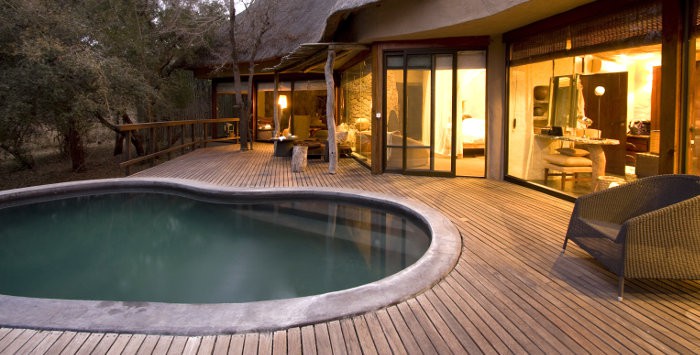
However, if you’re content with common restroom facilities, decent food, and a small bungalow or safari tent, there’s no reason why you can’t enjoy the affordable costs of going on safari.
Remember that you’ll be staying in a stunning location. This alone makes the price worth it. And while it’s great to stay in the lap of luxury, the main part of the experience is the wildlife and game viewing, and that’s very similar regardless of your accommodation choice.
Most Safari Costs are Based on an All-Inclusive Formula
The well-known “all in” formula means that everything is included in your package: from air flights (if applicable) to park entries, accommodation, game activities, and meals.
Additional costs may apply for drinks and any other extra activities around the lodge, which include night drives, boat trips, and guided walks. Prices will vary from place to place. To give you a general idea, typical daily activities cost anywhere from $20-100 pp (higher prices in top safari destinations). But then again, they might even be part of the deal.
Sometimes the cost of an African safari is very off-putting. But in general, you shouldn’t need much to spend after buying your safari package. USD 200 per day may sound a lot, but when that includes everything, including the greatest wildlife encounters on Earth, it’s totally worth it.
The Easiest Way to Reduce Your Safari Costs
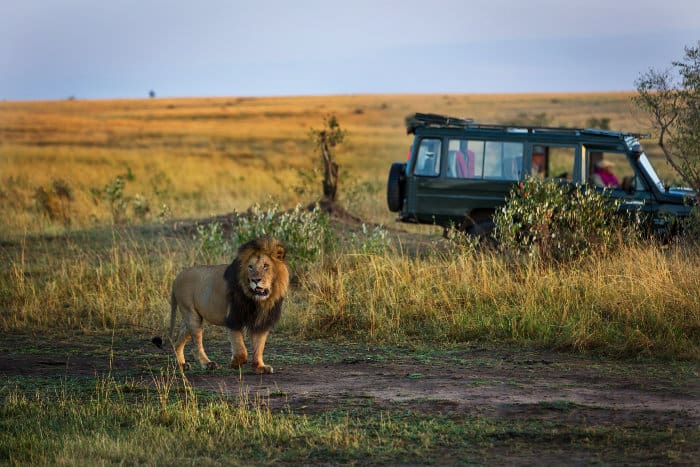
Later in the article we will discuss all the variables, including transport, accommodation, season, activities and more. You will learn some easy tips for reducing your safari costs. But these pale into insignificance in comparison to this…
African safaris cost less when you book with a local African safari operator.
Local safari operators, whether in Tanzania or Botswana, are the experts. They will be guiding your safari, whether you book direct or via an international travel agent. Local operators operate on a budget. They have low overheads and employ local people on local wages.
Compare that to any travel agent in your home country. Or to any major online travel agent. All travel agents have big overheads and big wages, so they need to make more money.
Every travel agent makes money through commission. You pay them for a safari. They keep 25-50%. And pass the rest to the local safari operator.
Book a USD 300 a day African safari with a travel agent and you will get a USD 200 a day safari. But book a USD 300 a day safari directly with a local tour operator and you really will get a USD 300 a day.
Many people don’t trust local tour companies. But you can still find reviews and recommendations for local operators, just as you do for travel agents.
Some people visit Africa, haggle over the price of everything, and complain that they are being ripped off. But the same people are very happy spending thousands of dollars on staying in hotels owned by multinational corporations, and using travel agents who funnel their profits to shareholders.
Book with a local operator and you will get a better safari for a better price, plus more of your money will be used to support the local economy.
If you need assistance then we have a partnership with a pan-African expert who can connect you with trusted local safari operators.
Camping

Lodges will often have two areas: one with bungalows/rooms, and another with campsites or tents. The second option is by far the most cost-effective (unless you are looking at “Luxury Camping”, but we won’t go into that here). Prices are reasonable, where you’ll only pay a small fee of as little as $5-15 per day to put up your tent and use the ablutions.
Additionally, another advantage of camping is that you’ll be inherently closer to nature. Especially at night, when nocturnal animals roam by your tent or bizarre sounds haunt your sleep.
Your most common visitors at night will be sneaky hyenas and common bush babies. Moreover, it is not unusual to hear lion calls from a distance.
A personal experience from Michael Theys

“I’ve personally experienced some interesting events on various occasions. One time, there was a huge bull elephant right outside my tent window. It was such an intense feeling. Besides being exciting, it was also a little intimidating. You could hear this tremendous animal smashing branches and crunching its food with a ravenous appetite. I was praying he wouldn’t suddenly decide to play with my tent! 🙂
Luckily, as you can tell, I’m still alive and well! I imagine that you might be figuratively jumping up and down on your seat as you read these sentences, but don’t worry. Many facilities are fenced off, and if not, they are guarded by armed men (quite often Maasai warriors in East Africa).
Regarding food, pay attention as this part is very important. Be on the look out for baboons and vervet monkeys that have a tendency to come and steal some of your belongings for themselves. Never leave anything lying around! There’s a good chance that what you leave misplaced will be gone in an instant.”
Planning a camping safari
The only downside to camping is that it demands more organisation and effort. On some safaris you will have to take your own camping equipment with you.
In some cases however, equipment may be provided at the camp itself. You will need to bring your own groceries, though some facilities have their own shops (i.e. Skukuza, inside Kruger National Park). You’ll also have to cook your own food (eating at the restaurant is an option), and drive your own car in the game area.
Then there are camping safaris organised by tour operators. These are popular budget safaris in East Africa. An operator will bring all the equipment and use public campsites, which keeps costs down.
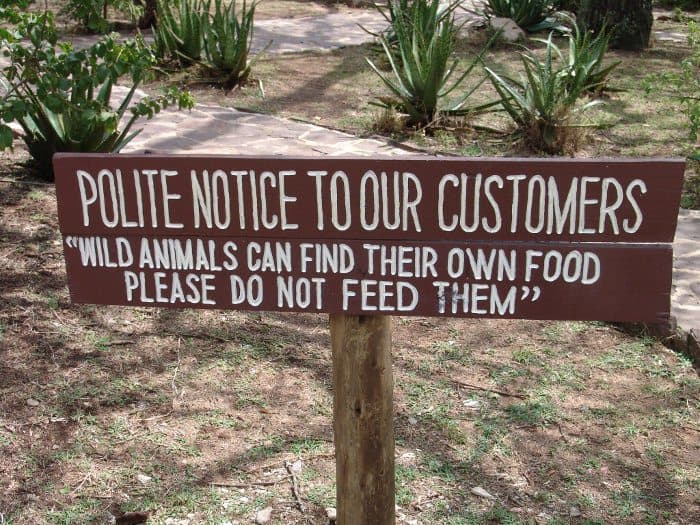
Bed and Breakfast Formula
One alternative to camping inside the park is to stay in the vicinity of the reserve. It’s not as unique an experience without the wildlife roaming around, but it can be a sensible choice if you’re on a tight budget.
Usually, there are a number of options available, ranging from hotels to hostels and guesthouses. Some hotels even have an impressive view overlooking the reserve itself, which is a great bonus as it gives you a flavour of the bush.
Residents vs Foreigner Fees
As you might expect, tourists are charged more than the locals to enter a conservation area. In most places the price difference is significant.
For instance, park entrances might be as low as $2 for a resident and as high as $100 for a foreigner. A place like Ngorongoro Crater in Tanzania charges $80 per person and $200 per vehicle.
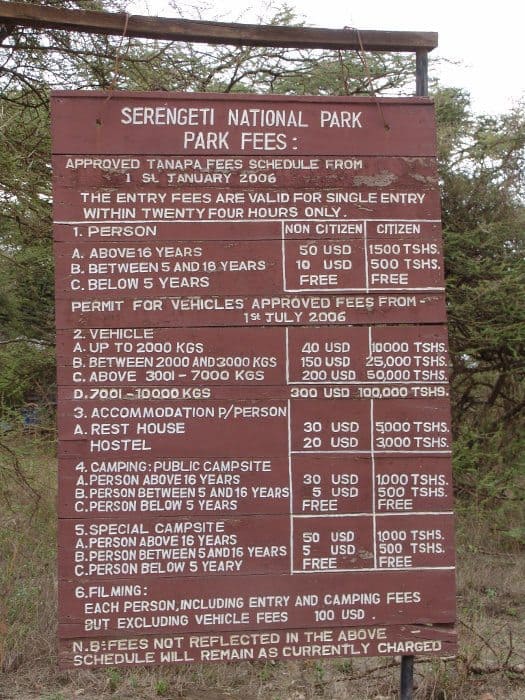
Africa Freak tip: If you’re on safari with friends who happen to be residents, it’s sometimes possible for you to enter as a local and pay the resident fee. Stay in the car, remain quiet, and let your pals do the talking.
It’s not always successful, but it’s worth a shot! 😉
How Much Does a Safari Cost (High vs Low Season)
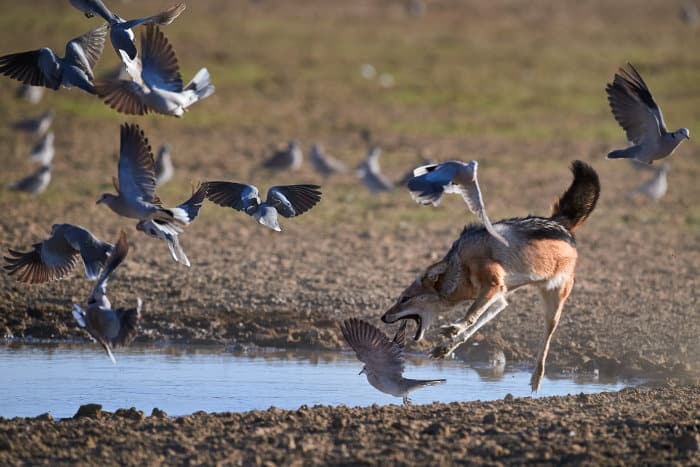
Dry season months are peak season for tourists and safari attractions in East Africa. In Southern Africa, peak season is during the cooler drier winter months.
Make sure that you have your reservations prepared well in advance, as places are often fully booked months beforehand. In South Africa for instance, areas of the Kruger are reserved up to a year ahead of time.
If you’re looking for a cheaper safari, try to plan your trip during the low season when the game viewing isn’t as good.
But “not quite as good” is a relative term. Whenever you visit, a safari is a magical experience. You can experience incredible sightings during the rainy season or tropical summer months.
In the dry season, wildlife must congregate around waterholes, which makes it easier to spot. But that doesn’t mean it disappears during the rest of the year. It’s still around. You just need to look a little harder. In some places of East Africa, when it really rains, dirt roads become impassable and several facilities are forced to close down.
Transport
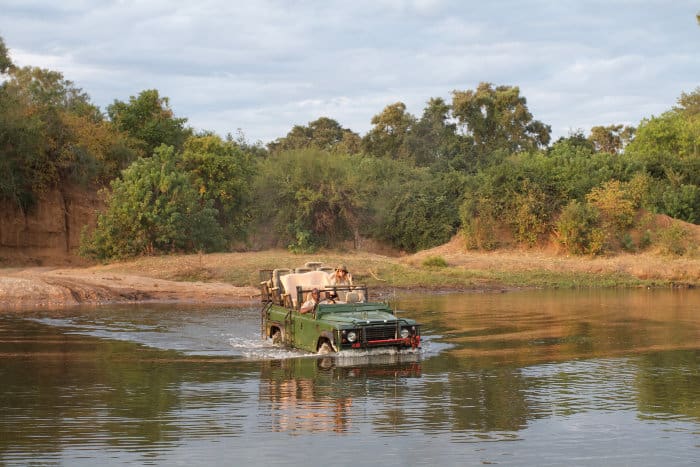
Driving your own vehicle or renting a car for a safari might be the cheapest available option, especially in Southern Africa. Park roads are well indicated and it’s possible to buy local maps at the entrance.
However self-driving is not always possible. In private game reserves and certain nature reserves, you can only go on safari with cars provided by the lodge or park.
How Much Does it Cost for an African Safari?
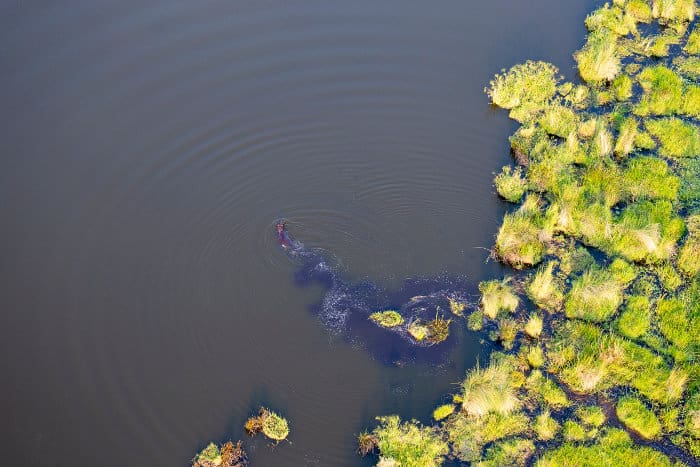
Like all vacations and all unique experiences, the price of an African safari varies person by person. So instead of thinking about how much does an African safari cost, how about switching the question to something more meaningful.
Our recommendation is to think about how much is a safari worth to you.
An Africa safari is an unfiltered connection with the greatest wildlife and wildernesses on the planet. Africa is Africa – you can’t have the safari experience anywhere else!
There truly is nothing like it, this chance to go eye to eye with the greatest animals to walk our planet. Not only is an African safari an incredibly personal experience, it’s an experience that will change how you view the world.
So how much is that worth?

